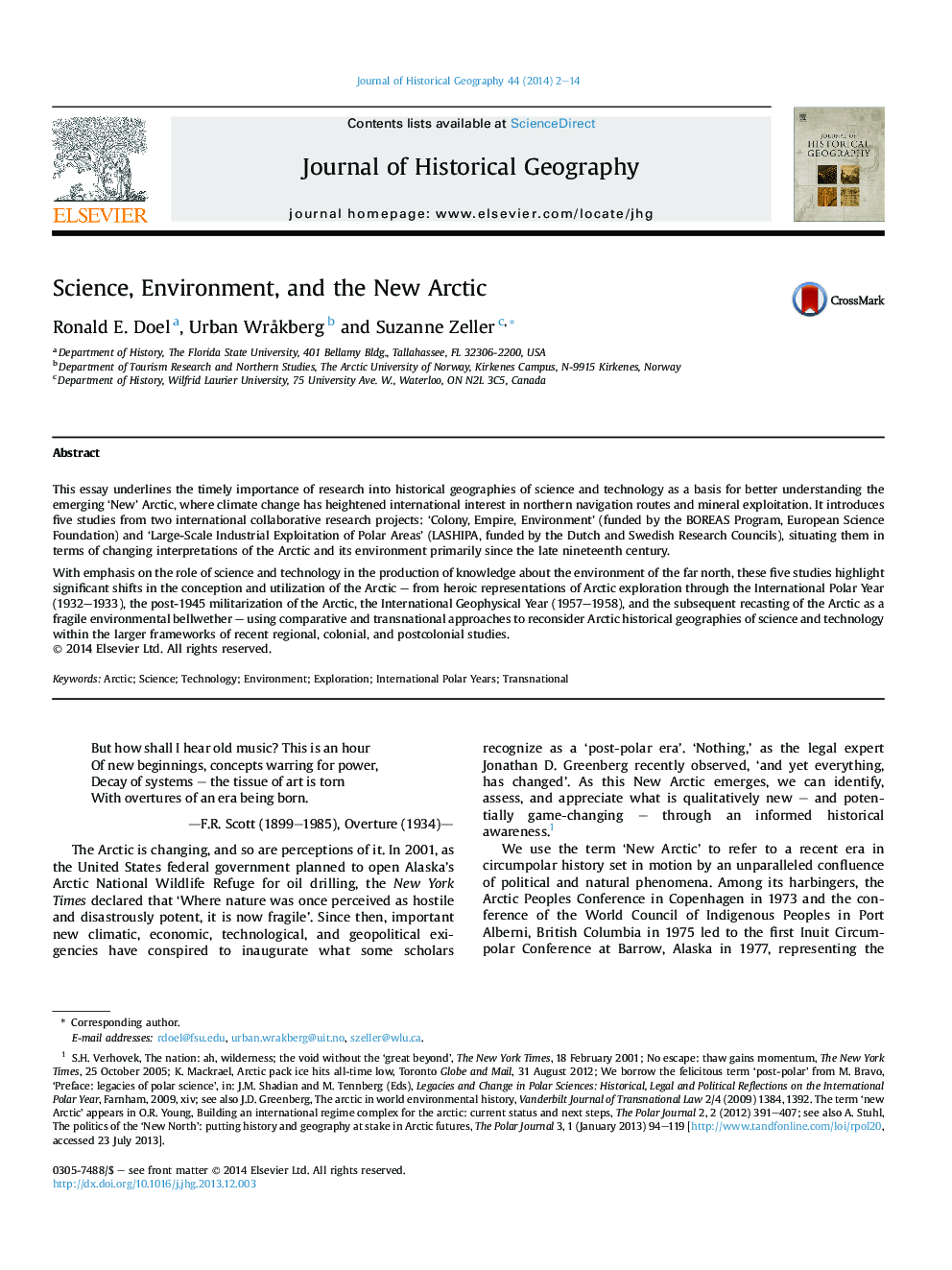| Article ID | Journal | Published Year | Pages | File Type |
|---|---|---|---|---|
| 1038997 | Journal of Historical Geography | 2014 | 13 Pages |
•Introduces five collaborative essays that explore historical geographies of science in the ‘New Arctic’.•Contextualizes the ‘New Arctic’ as defined by climate change and the resulting international interest in the region and its natural resources.•Offers new transnational insights into twentieth-century Arctic science and environmental knowledge production.•Considers recent scholarly reinterpretations of Arctic exploration, internationalization, militarization, and resource exploitation.
This essay underlines the timely importance of research into historical geographies of science and technology as a basis for better understanding the emerging ‘New’ Arctic, where climate change has heightened international interest in northern navigation routes and mineral exploitation. It introduces five studies from two international collaborative research projects: ‘Colony, Empire, Environment’ (funded by the BOREAS Program, European Science Foundation) and ‘Large-Scale Industrial Exploitation of Polar Areas’ (LASHIPA, funded by the Dutch and Swedish Research Councils), situating them in terms of changing interpretations of the Arctic and its environment primarily since the late nineteenth century.With emphasis on the role of science and technology in the production of knowledge about the environment of the far north, these five studies highlight significant shifts in the conception and utilization of the Arctic – from heroic representations of Arctic exploration through the International Polar Year (1932–1933), the post-1945 militarization of the Arctic, the International Geophysical Year (1957–1958), and the subsequent recasting of the Arctic as a fragile environmental bellwether – using comparative and transnational approaches to reconsider Arctic historical geographies of science and technology within the larger frameworks of recent regional, colonial, and postcolonial studies.
